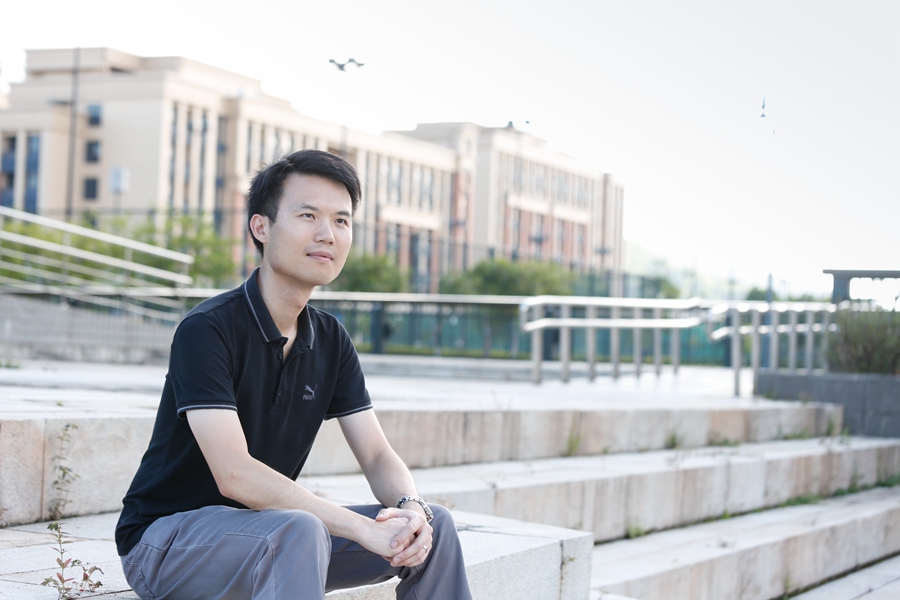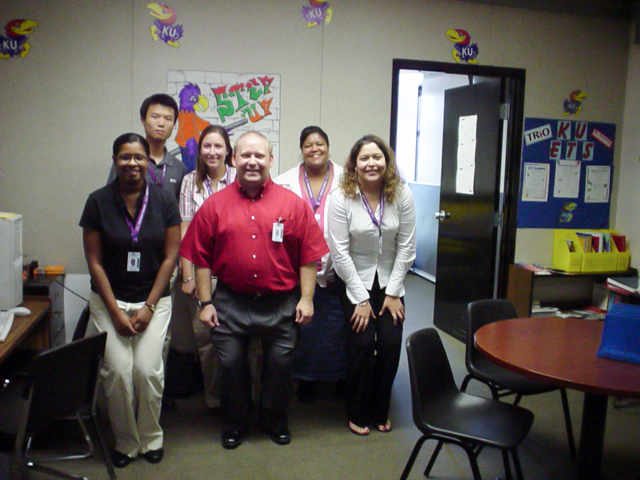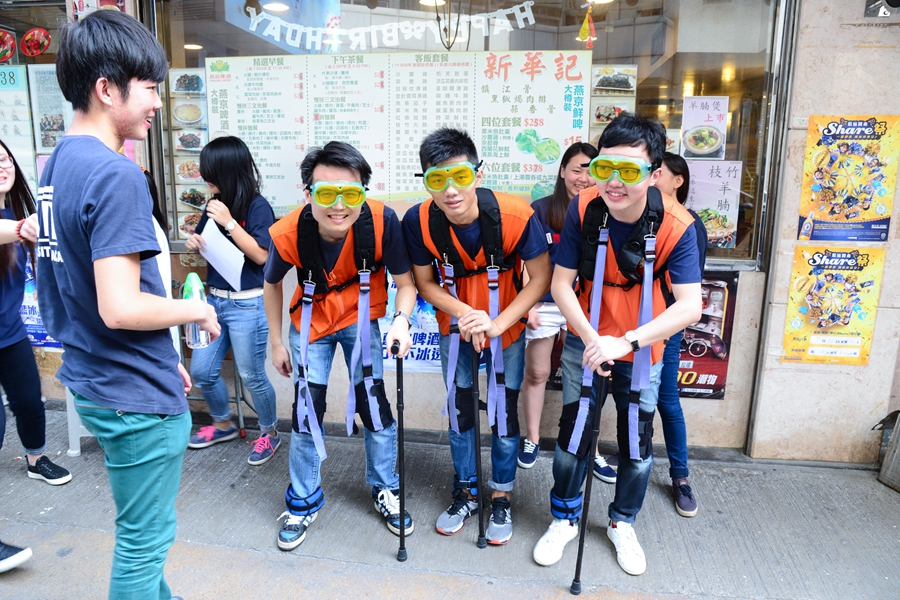Tim is a social worker from the Student Counselling Section. ‘Think outside the box’ is his motto. Although he hasn’t handled many cases involving students with physical or mental disabilities since he joined the university in 2009, the challenges he has overcome in the process are numerous.
Finding His Calling after Repeatedly Changing Majors
After graduating from high school in Macao, Tim went to the University of Kansas in the United States to study journalism, only to find that his English was not good enough to follow the lessons effectively. So he transferred to the sociology department, but he disliked the theory-heavy courses. It wasn’t until he transferred to the School of Social Welfare that he finally found his calling—social work that helps people solve problems. After graduation from college, Tim went on to study for a master’s degree in clinical social work. The four years of undergraduate studies taught him how to help others with the resources in society, while his postgraduate studies helped him gain a deeper understanding of the different skills required in helping others. ‘Together, these trainings help me do a better job,’ he says.
Leaving Psychiatric Hospitals
Tim once worked in a psychiatric hospital in the US for two years. Working as a social worker at UM shares many similarities with working in the US. While working in the US, he often needed to contact different agencies and help released patients to find a place to live, which was very difficult, because most of the institutions didn’t want them.
At UM, he also needs to liaise with different departments on and off the campus, so as to help students solve their problems with available resources.
After working for two years in the US, the head of Tim’s department wanted to help Tim apply for a work permit, but the hospital didn’t feel it was necessary to use tax payers’ money to apply for a work permit for a foreigner. An optimistic person by nature, Tim didn’t feel disappointed or angry. ‘I thought I could come back to Macao. I thought it’d be good to come back and serve Macao residents.’
Serving the First Student with Physical Disability
Tim joined UM in 2009, about one year after the university established the Committee on Student Disability Services. ‘This is my third job after I returned to Macao,’he says.‘I am mainly responsible for providing help and support to students with physical or mental disabilities, handling student-related crises, and following up on cases involving other students with special needs.’The most unforgettable case Tim has handled involved a student named Katherine who needed to get around in a wheelchair. That was six years ago, when UM was still on the old campus, with many inconvenient staircases. So Tim had to help solve accessibility problems before Katherine arrived on campus.
The trickiest aspect was coordinating with the appropriate departments. ‘For example, I needed to find a place in the parking lot for Katherine so she could charge her electric wheelchair there after class,’ he says. ‘Also, she needed to go to classrooms on the lower ground floor in the library, but there was no elevator for students, so I asked the library if they could let Katherine use the elevator for staff, the library soon said yes, but the student had to contact the security guard first to unlock the elevator, and I spent quite some time solving these problems.’
Whenever he encounters difficulties at UM, Tim would ask himself, ‘Why can’t it be done? I just want to help people.’Tim feels thankful that nowadays the various departments at UM are all very supportive of students with disabilities. Two years ago, Katherine received her bachelor’s degree in sociology. Earlier this year, she completed her master’s studies in Chinese/English translation. ‘Before I came to UM, I rarely sought help from social workers, but over the past six years Tim has provided a lot of help to me,’ says Katherine. ‘He completely changed my impression of social workers. He is thoughtful and patient with the students, and he often came up with solutions for me that even I couldn’t think of.’
The Value of Work
Accessible facilities were part of the design of the new campus. But some accessible facilities needed to be improved and adjusted after the university moved to the new campus. In the winter of 2014, after the trial use of the new campus began, Tim and a consultant on accessible facilities from Hong Kong walked around the campus for three days, discussing how to improve the designs of the ramps, entrances, exits, as well as other accessible facilities on campus. ‘We covered practically every corner. In the end we were limping,’ says Tim. Despite the various challenges, Tim believes in the value of what he does. ‘We want to build a campus that is easy to use for both able-bodied students and people with disabilities. Even if we only had one student with disabilities, we would still do our best to help and care about him/her,’ he says.
Apart from Katherine, Tim has also helped Joe, a student with leber’s hereditary optic neuropathy who gave an interview to My UM three years ago. Tim called his friends and institutions for the blind in Hong Kong to inquire about visual impairments. He and some colleagues from the Faculty of Business Administration even escorted Joe and his parents to Hong Kong in order to help Joe find a suitable device and learn how to adapt to changes created by his condition. ‘The most important thing for students with physical or mental disabilities is to learn to accept themselves,’ he says.‘In my experience, caring too much or providing too many services for students with disabilities would actually backfire, because that would make them feel that they are singled out for special treatment. The right attitude is to treat them in the same way you treat normal people and provide help where they really need.’
Greatest Reward
Tim never forgets why he became a social worker in the first place. Whatever he does at work, he follows the teaching‘to act justly, to love mercy, and to walk humbly’. ‘My college professors used to tell us to set lofty goals and fight for the rights and interests of the masses, I can’t always get the resources I need, but even with limited resources, I would always do my best,’he says.‘I always feel the happiest when I see a student gradually learns to accept herself and becomes more confident. If the students I have helped can achieve something worthwhile after graduation, it would be the greatest reward for my work.’



